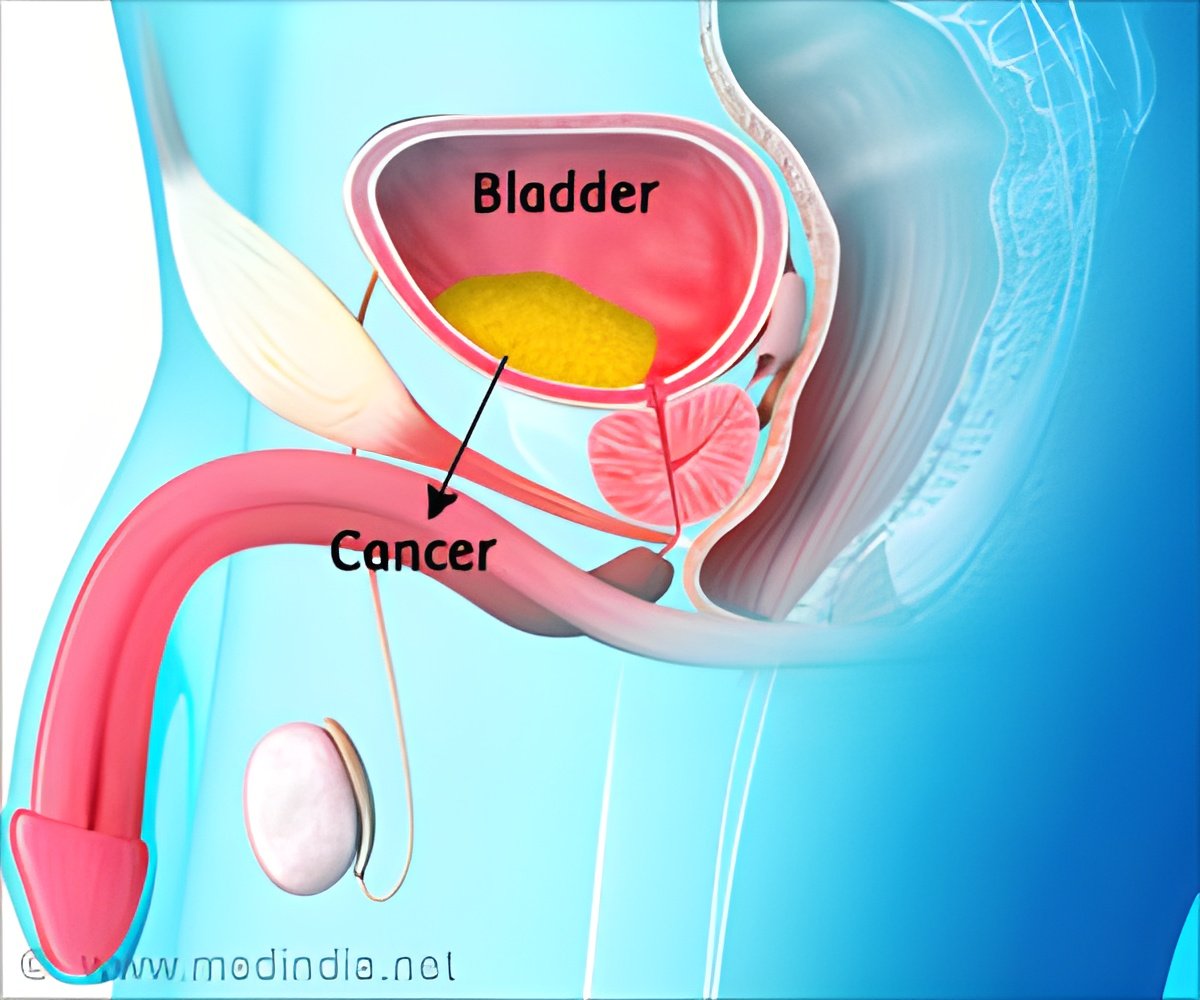Finding the mutated gene that causes cancer can help turn it off or fix it, is the story of cancer care.

Somatic BAP1 alterations contribute to a high frequency of tumors (10/14, 71 percent) with defects in genes encoding BRCA1 and BRCA2 pathway proteins, pathways that have been previously implicated in breast and other cancer types.
More surprising, a second, highly independent genetic pathway was found in 69 percent of 54 tumors, in which alterations of the TERT promoter created what is effectively a second subset of bladder cancer. The TERT promoter mutations did not significantly correlate with somatic alterations in other cancer genes, indicating that this alteration confers a presumed oncogenic benefit independent of other cancer gene alterations.
The gene KDM6A was frequently altered in 24 percent of tumors, and the study shows that experimental depletion in of KDM6A in human bladder cancer cells enhanced in vitro proliferation, in vivo tumor growth, and cell migration, confirming its role as a cancer driver and tumor suppressor in bladder tissue.
The study revealed other surprising relationships between the types of genetic alterations in bladder tumors. BAP1 somatic mutations may correlate with papillary features in some bladder tumors and were significantly more frequent in Caucasian patients than Chinese patients, indicating ethnicity, lifestyle, or exposure may influence somatic BAP1 mutations. BAP1 and KDM6A mutations significantly co-occurred in tumors, indicating they likely supply mutually reinforcing survival advantages to cancer cells. Finally, just four genes encoding chromatin remodeling enzymes, BAP1, KDM6A, ARID1A, and STAG2, were altered in 46 percent of 54 tumors and demonstrate a major contribution from somatic alterations targeting chromatin remodeling functions in bladder cancer.
"Taken together, we have identified new subtypes of bladder cancer that are related by somatic and germline genetic alterations that are observed in patient tumors. These subtypes may be vulnerable to subtype-specific therapeutic targeting. For example, many tumors in this study possessed cells with mutations targeting the BRCA DNA repair pathway indicating they are likely to be deficient in their ability to repair DNA," says Dan Theodorescu, MD, PhD, professor of Urology and Pharmacology, director of the University of Colorado Cancer Center and the paper's senior author.
Advertisement
Source-Eurekalert













